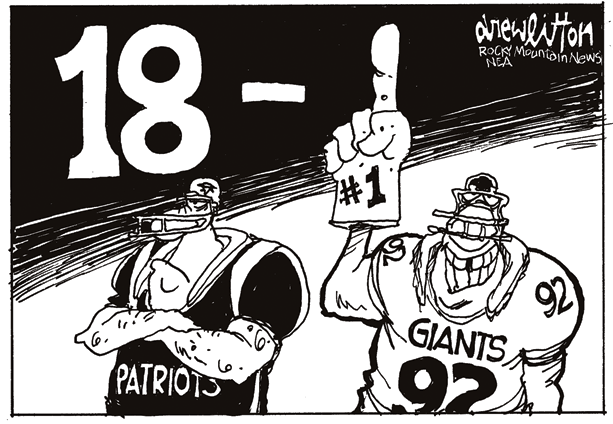Yes, it’s that time of year. Fantasy football players who own Peyton Manning are losing sleep every night. The Colts have done all they can do, and the threat of Jim Sorgi is lingering. Is resting your starters when you have home field advantage really the best thing to do? Every year we hear: “save it for the playoffs”, “keep everyone healthy”, “our goal is to win the Super Bowl”. While those are seemingly good reasons, there’s not any statistical evidence to suggest that resting the final week(s) improves playoff chances. In fact, it’s quite the opposite.
In years past, it’s not been such a huge issue. Normally, Indy has a loss or two going into the last week, and with nothing to gain, Peyton Manning and the other star players are in for a series or two, and then spend the rest of the game on the sidelines. This season, for the first time ever, two teams, the Colts and Saints, are 13-0. The Saints are showing no signs of folding; coach Sean Payton said “we’re going for it.” But, for the Colts it looks like business as usual. Rumor has it the starters will play at least a majority of the game this week, although all bets are off when it comes to the last two games of the season. Former coach Tony Dungy, now an NBC analyst, insists that the Colts will stick to his old strategy, ending any chance of an undefeated season. Whatever happened to playing to win the game? Where’s Herm Edwards when you need him?
In four of the final five years of Dungy’s tenure as head coach, the Colts rested Peyton Manning for a majority, if not all, of their final game of the season. Other key players would often rest too and if things were going super smoothly, they’d even mail it in for their week 16 game. Only during the 2006 season did the Colts play to win in the final week because they had not yet clinched home field advantage. The pressure was on all season. They spent an extra week worth of energy. They risked all the injuries. Guess what happened: they won the Super Bowl. Sure, Tony Dungy did a great job in Indy, but they made the playoffs all seven years he was there with one of the best quarterbacks of all time, and somehow only made it to one Super Bowl and two conference championships. They’ve lost their first playoff game each of the last two seasons. Perhaps a change of strategy is in order?
So, on what basis do they decide it would bet better to take it easy at the end of the season when most teams are peaking? We saw it last year: regardless of record, teams who are playing well at the end of the year are more likely to make a deep playoff run (Arizona Cardinals) than teams who are struggling toward the end of the season (Tennessee Titans) or those who decided to bench their starters (Colts, obviously). The San Diego Chargers, who have eliminated the Colts in each of the last two season, have won eight games in a row. It’s in the best interest of Indianapolis to keep the momentum they’ve had all year, rather than try to get back into the swing of things after a few weeks away from meaningful games. The quest for 16-0 would do nothing but help keep the team sharp and ready for the postseason.
But what about the 2007 Patriots, one of only two teams since the AFL-NFL merger to go undefeated in the regular season, and a commonly used example in the case against attempting to run the table. During that season, it was clear they were trying to win every game, often continuing to score even after the outcomes of games were decided. Unfortunately for them, they lost in the Super Bowl to the New York Giants, spawning boatloads of “18-1” merchandise. Was it the pressure of a possible undefeated season that caused them to lose? Every team is subject to a close game here and there, but the reason they fell short of 19-0, is because of the flukiest play ever, involving a quarterback who hasn’t played that well before that or since then, and a receiver who has since been cut and now plays on special teams for the Ravens. In any given game, a few inches can make the difference between a win and a loss. This heralded Patriots team was no different; their undefeated record had nothing to do with it.
Even outside of the case history, there are plenty of reasons to shoot for 16-0. Tickets are expensive and no one pays to see Jim Sorgi; do it for the fans. If you effectively forfeit games at the end of the season, you can alter the playoff picture unnecessarily; do it for the integrity of the league. We always hear that the ultimate goal is the Super Bowl, but why? Obviously it’s important to win, but there have been more than forty Super Bowl champions and going undefeated would be a legendary achievement. When listing the great NFL teams of all time, we’d think of the the 2007 Patriots long before any mention of the champion Colts from a year before. What should be the real goal, to bench your best players in order to preserve an imaginary advantage or to put the best team out there every week and strive to be one of the great teams of all time?
Go for it. There’s no good reason not to.





